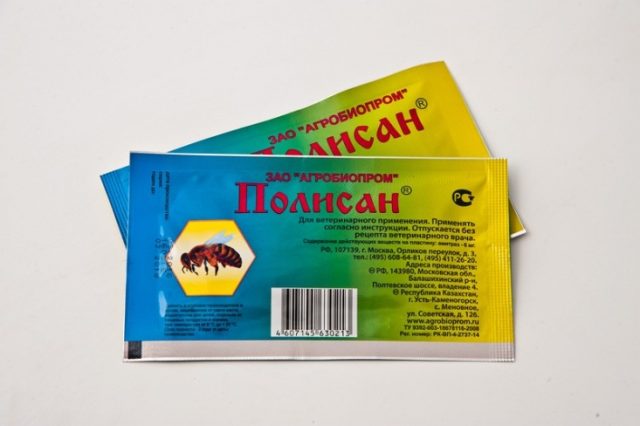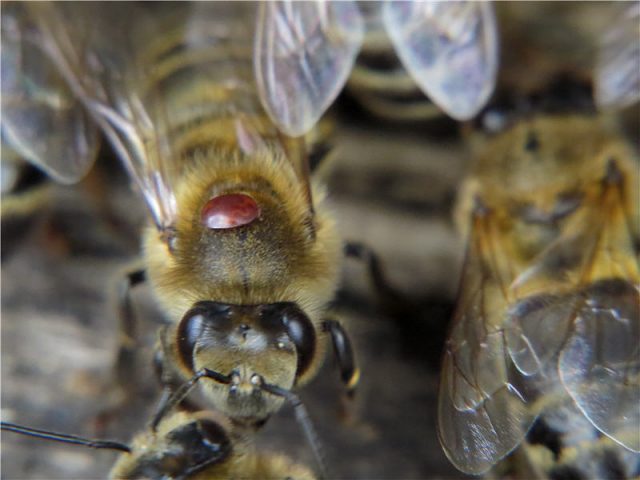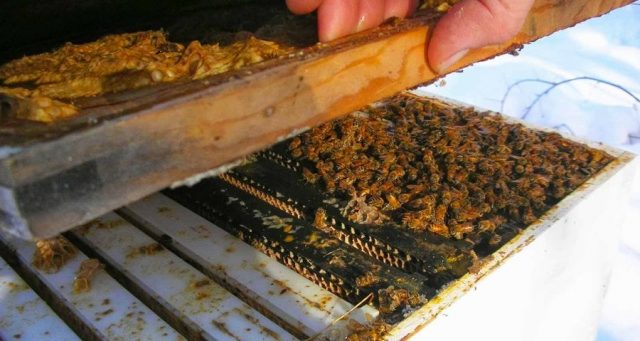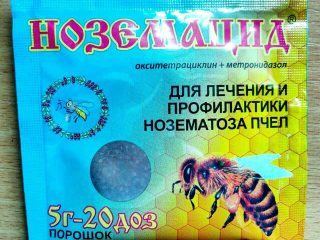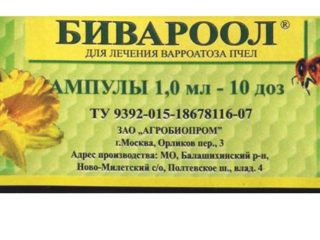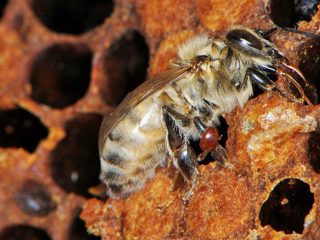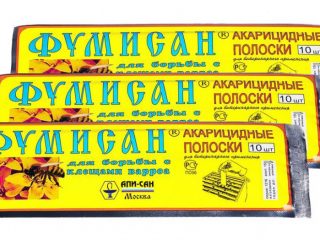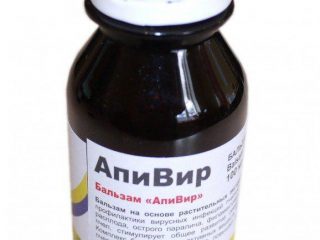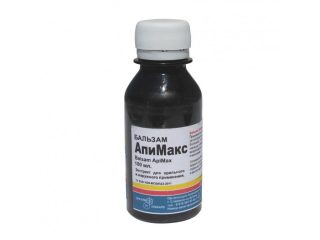Content
- 1 For what diseases in bees is Polisan used?
- 2 Composition, release form
- 3 Pharmacological properties
- 4 Polisan for bees: instructions for use
- 5 Dosage, rules of use of the drug for bees Polisan
- 6 Side effects, contraindications, restrictions on use
- 7 Shelf life and storage conditions
- 8 Conclusion
- 9 Reviews
Beekeepers often encounter various diseases in bees. In this case, it is necessary to use only proven and effective drugs. Polisan is a veterinary drug that has been used for several years to treat bee colonies against mites.
For what diseases in bees is Polisan used?
Bees are susceptible to mite infestations. Such diseases are called acarapidosis and varroatosis. Mites reproduce and breed in winter, when the bee colony is in an enclosed space. Parasites infect the respiratory tract of bees, and they die.
The first signs of the disease are difficult to notice. It can be asymptomatic for a long time. Later, beekeepers observe the birth of bee offspring with a small body weight. Such individuals do not live long. In summer, insects stop performing their functions and fly out of the hive.
In this case, already at the end of summer, after pumping out the honey, they begin to treat the hive with the drug “Polisan”. This is done during the period when the air temperature has not dropped below + 10 Cᵒ.In the evening, as soon as the bees fly into the hive, processing begins. The drug is opened immediately before the procedure. The medicine will need 1 strip per 10 hives.
Families infected with ticks are treated twice. The interval between fumigations is 1 week. For preventive purposes, young bee colonies are fumigated once in spring and late autumn. Honey after this procedure can be eaten.
Composition, release form
“Polysan” is a solution of bromopropylate applied to thermal strips 10 cm long and 2 cm wide. One package contains 10 thermal strips, hermetically sealed in foil. Polisan is not produced in the form of tablets, aerosols or powder, which contains bromopropylate. The product is used to fumigate bees affected by acarapidosis and varroa.
Pharmacological properties
The drug has an acaricidal (anti-mite) effect. Smoke, which contains bromopropylate, is released when smoke strips burn. It destroys pests in the hive and on the bee's body.
Polisan for bees: instructions for use
The drug is used in the spring after the first flight of bees. In autumn - after pumping out honey. Treatment is carried out early in the morning or late in the evening, during a period of complete calm of insects.
Before processing begins, subframes in the form of a grid are installed in the hives. The Polisan strips are set on fire, waited until they begin to smolder well, and extinguished. At this time, smoke will begin to emit. The strip is placed on the bottom of the mesh subframe and left to burn out. Afterwards, the lower and side tapholes must be hermetically sealed.
In accordance with the instructions for Polisan, treatment is continued for an hour.After this time, the hive is opened and the subframe is removed. If the strip has not completely decayed, the treatment should be repeated using half of a new Polisan thermal strip.
Dosage, rules of use of the drug for bees Polisan
For a one-time treatment of one hive, you need to take 1 strip of the drug. Fumigation is carried out a month before the start of honey collection or immediately after it. The smoke aerosol is opened immediately before processing.
Side effects, contraindications, restrictions on use
There are no side effects from the use of this drug. It is not recommended to use more than 1 Polisan thermal strip per hive. The drug is not used in winter during the hibernation period of bees and in summer during the honey production period.
Shelf life and storage conditions
Polisan thermal strips retain their properties for 2 years from the date of issue. The drug is stored sealed in a cool, dark place. Air temperature during storage is 0-25 Cᵒ.
Conclusion
Polisan is an effective modern remedy with an acaricidal effect. Widely used in veterinary medicine to combat mites in bees. Its effectiveness and harmlessness for the bee colony has been proven.
Reviews
Reviews from beekeepers about Polisan are the most positive. Consumers like the drug for its ease of use and lack of side effects.
